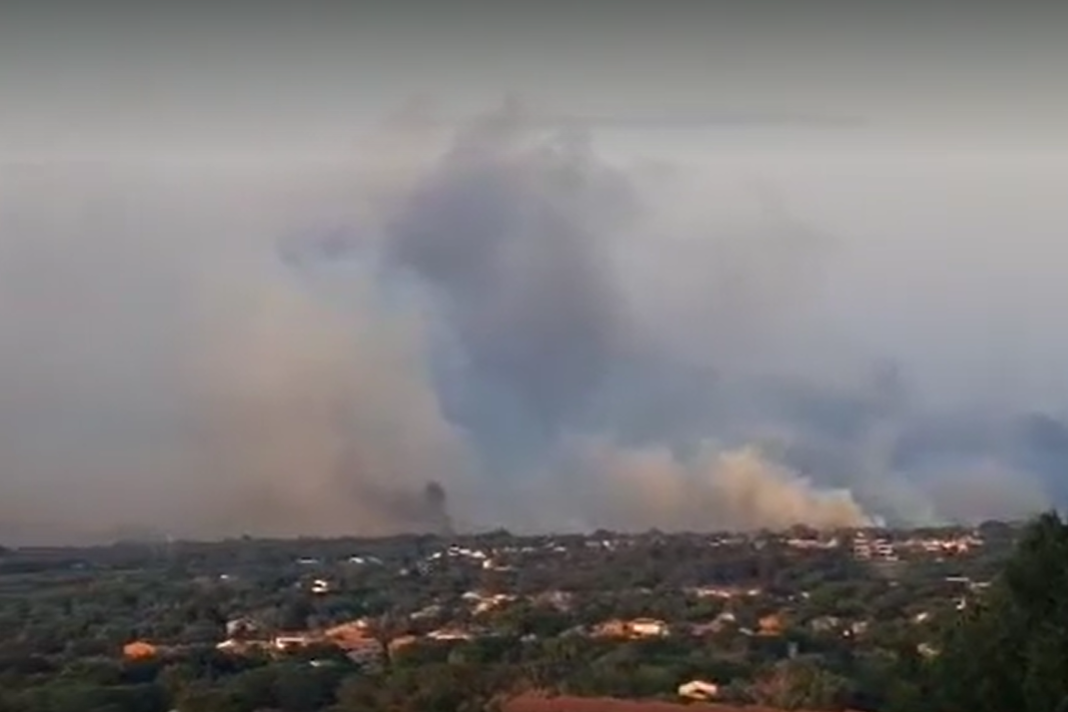Pyrenees wildfire ‘was terrifying’, says Briton living in France
Steven Brady said he felt ‘terrified’ when he saw the blaze accelerate towards the Roussillon area where he currently resides.

Your support helps us to tell the story
From reproductive rights to climate change to Big Tech, The Independent is on the ground when the story is developing. Whether it's investigating the financials of Elon Musk's pro-Trump PAC or producing our latest documentary, 'The A Word', which shines a light on the American women fighting for reproductive rights, we know how important it is to parse out the facts from the messaging.
At such a critical moment in US history, we need reporters on the ground. Your donation allows us to keep sending journalists to speak to both sides of the story.
The Independent is trusted by Americans across the entire political spectrum. And unlike many other quality news outlets, we choose not to lock Americans out of our reporting and analysis with paywalls. We believe quality journalism should be available to everyone, paid for by those who can afford it.
Your support makes all the difference.A British man living in the south of France has said a fire on Monday night in the Pyrenees was the “biggest” he has seen and it was “unbelievable” there were no lives lost.
Steven Brady, who is originally from Wigan but now lives in the Roussillon region, said he felt “terrified” as he saw the blaze accelerate when it came over the Pyrenees towards his home.
The wildfire erupted between Saint-Andre near the Spanish border and the resort of Argeles-sur-Mer along the Mediterranean coast where it was reported that more than 3,000 tourists were evacuated from holiday homes and campsites.
The fire reportedly burned more than 500 hectares of land, but was brought under control by firefighters on Tuesday morning and there have been no reports of casualties.
Mr Brady, 57, told the PA news agency: “The (fire) last night was the biggest one I’ve seen here and it was very scary because instead of having strong winds from the east, it came from the south – just a hot, dry blast.
“It accelerated when it came over the Pyrenees, hit the flat Roussillon plain heading straight for us and we’re all terrified because it was going to incinerate the village and all the campsites around it.”
Mr Brady has lived in the French region for six years, but described the fire as “different” and “very rare”.
The Briton captured footage of the smoke billowing around 6km away from his home from Alberes hills, which look over to Sorede, Saint-Andre and Argeles-sur-Mer.
He said: “Normally fire rises up and climbs the hill… This was different.
“It started halfway down the hill in Saint-Andre, right near us. Thankfully for us, but not for the people there, it headed towards the sea, which is very rare.
“It was terrifying. Most of the residents of this village all went out to climb the hill last night and got the cameras out – they’ve probably never seen that phenomenon.”
Mr Brady added that it was “unbelievable that no-one was killed”.
He said: “It came on like a mini hurricane. The flames were whipping up… it was horrific.
“Your average fires happen quite a lot around here, but that was something that could have been an absolute catastrophe.”
Mr Brady has praised local firefighters for swiftly and effectively containing the fire, which provided him with “reassurance”.
He said: “(The firefighters) have done a brilliant job.
“I think they prepare well for it, but those particularly climatic conditions last night, there’s not a lot you can do. You can prepare and train for it, but I haven’t seen that before.
“The winds, because we’re surrounded by mountains in the Pyrenees, can suddenly change… that takes a special kind of bravery to tackle that.”
On Tuesday, France’s minister of ecological transition, Christophe Bechu, visited Les Chenes Rouges campsite and took to social media to describe what he saw.
Translated from French into English, Mr Bechu tweeted: “These striking images testify to the intensity of the fire. I am committed to supporting tourism stakeholders in the reconstruction and restoration of devastated natural areas.”